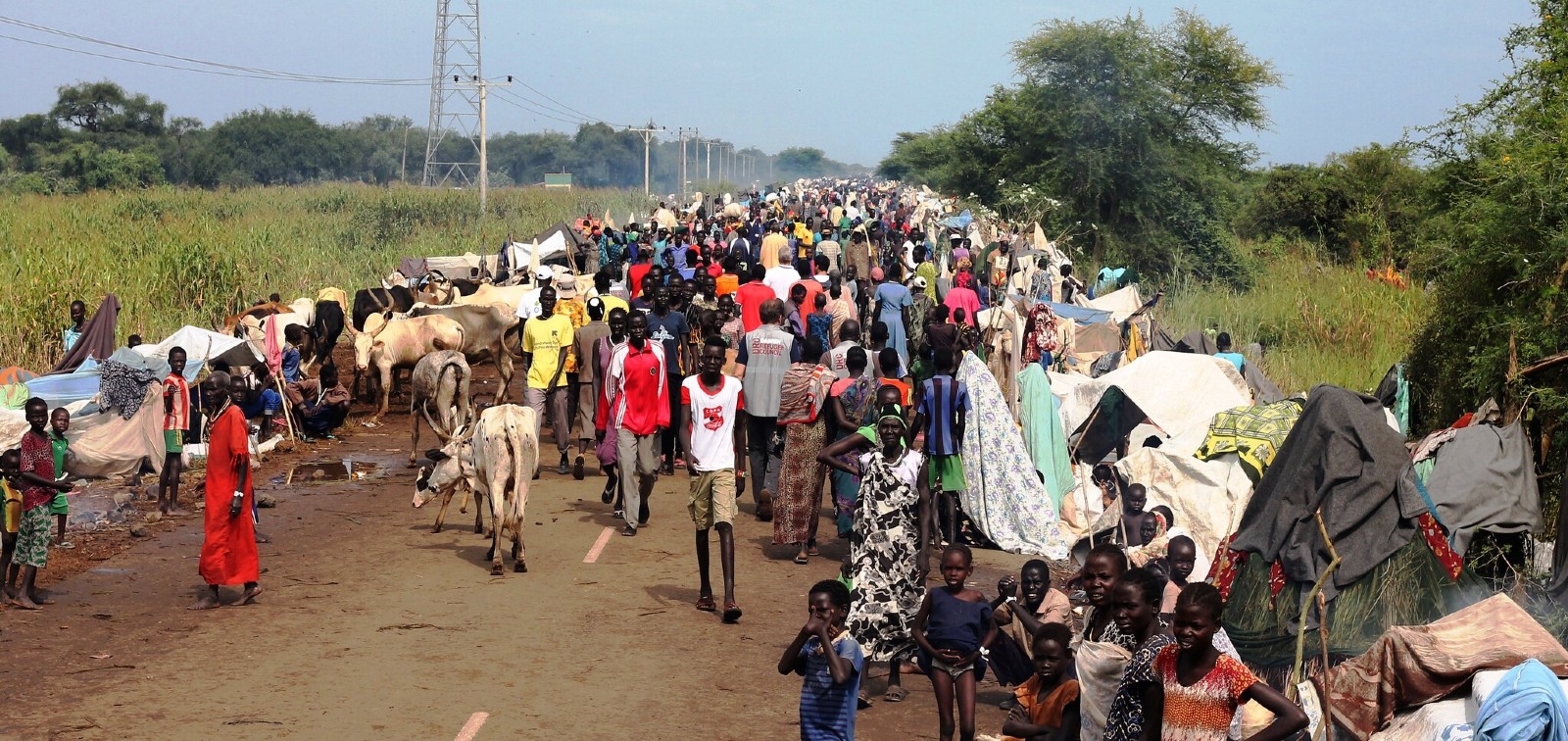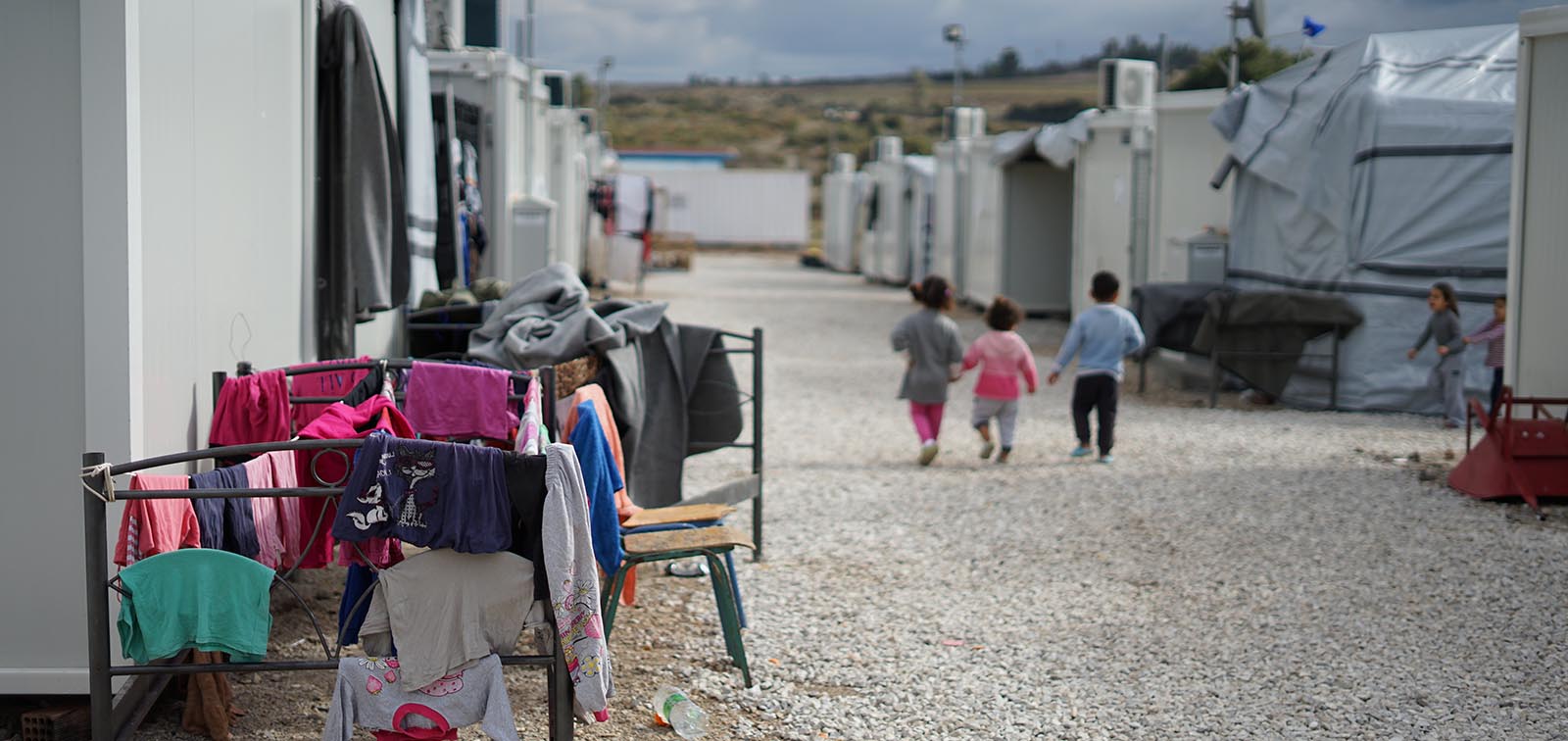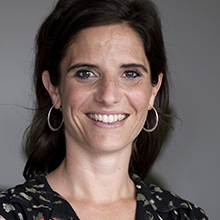New Project Will Study How to Improve Health of Migrant Populations in North Africa and Middle East Through Data Collection and Better Access to Health Services
The initiative was awarded €1.5 million through the Mobility – Global Medicine programme
11.01.2022
A project to improve data collection and surveillance of the health of migrant populations living in North Africa and the Middle East is among the seven winners selected by Mobility – Global Medicine and Health Research 2020, a programme funded by four European foundations. The ”la Caixa” Foundation will provide €1,499,996 to implement the project over the next three years under the coordination of ISGlobal.
The Middle East and North Africa (MENA) has become a global migration hotspot: in 2019, 46 million people who had left their countries of origin were living in the region. Little is known about the health status of these people because they typically are not included in the health information systems that monitor and share data across countries and regions.
The absence of records results in both a lack of epidemiological data on the main health problems affecting these populations (e.g. the real effects of COVID-19 on these groups are unknown) and difficulties in terms of developing health policies and delivering services (e.g. how should COVID-19 vaccines be deployed in these populations?).
Accessing to Health Data
“It is important to understand what is happening to these migrant populations,” explained Ana Requena-Méndez, assistant research professor at ISGlobal and principal investigator on the project. “We want to understand what their health needs are, whether health programmes take their specific circumstances into account and whether they are accessing services well, so that we can act accordingly. This is why we need to have access to health data on this population.”
ISGlobal’s project aims to address this problem by using an innovative digital tool—the Migrant Health Country Profile tool (MHCP-t)—to facilitate the monitoring of key indicators of the health of the migrant population in six North African countries (Algeria, Egypt, Libya, Morocco, Sudan and Tunisia) as well as Yemen. MHCP-t is capable of collating migrant health data on multiple diseases and vaccination coverage from each country’s health information system as well as from other sources, such as national registries, research projects and data collected by NGOs.
“The goal is to understand what sorts of immigration indicators are used in relation to various diseases (tuberculosis, HIV-AIDS, viral hepatitis, non-communicable diseases, malaria and neglected tropical diseases, vaccine-preventable diseases and COVID-19) and determine what new indicators could start to be collected proactively or routinely,” explained Requena-Méndez. “We want to know, for example, whether national tuberculosis programmes include a migration indicator in their tuberculosis data and, if not, figure out how they could start to collect this information and ensure that they do so in a useful way (data are often recorded on paper).”
Drive Changes in Health Policies
The project also aims to determine whether the health policies of these countries take into account the particular circumstances faced by migrants, including their access to health services, in order to ensure that all this information helps to improve health policies that affect this population.
The purpose of MHCP-t, therefore, is to improve the collection of data on the migrant population and ensure that the health inequalities revealed by the tool can be translated into significant changes, in terms of both service provision and public health policies. “We are also interested in making sure that the tool we designed will we useful beyond the three years for which the project is to receive funding,” commented Requena-Méndez. “Our hope is that it will drive changes in health policies over the long term.”
Another priority is to improve research capacity in Middle Eastern and North African countries by creating a research network focused on migration and health and promoting young researchers in the region. To this end, ISGlobal has created an international consortium comprising Sudan’s Blue Nile National Institute for Communicable Diseases, the Institute of Infection and Immunity at St George’s University of London in the United Kingdom, the National School of Public Health (ENSP) in Morocco and the National Board for Family and Population at the Tunisian Ministry of Health. In addition to coordinating research activities, the consortium, known as the Migrant Health MENA Working Group, will develop an ambitious international doctoral programme that will provide grants to six PhD students and two postdoctoral fellows under the auspices of the project.
“It is a complex and ambitious project, but we are well positioned because we are not starting from scratch,” commented Requena-Méndez. A couple of years ago, in the early stages of the project, a very simple questionnaire was designed and submitted to five people from the International Organisation for Migration (IOM), the United Nations agency for migration. “We saw that it was an interesting product to develop further,” explained Requena-Méndez. “We realised that we could incorporate the perspective of NGOs working on the ground, for example, as well as ministries of health, hospitals and the migrant communities themselves.”
The project will look at the applicability of MHCP-t in other regions and the potential use of the tool in facilitating rapid data collection in migrant populations during future disease outbreaks.
Seven Global Health Research Projects Receive Awards
In its call for applications, the Mobility – Global Medicine and Health Research programme emphasised the global health opportunities and risks associated with increased mobility, as well as possible solutions to its effects.
The programme is a joint initiative of the ”la Caixa” Foundation (Spain), the Novo Nordisk Foundation (Denmark), the Wellcome Trust (United Kingdom) and the Volkswagen Foundation (Germany).
The 2020 programme awarded a total of €10.3 million to seven global health research projects. The projects selected by each collaborating foundation—Wellcome Trust, Novo Nordisk, Volkswagen Foundation and ”la Caixa” Foundation—are led by a researcher from the United Kingdom, Denmark, Germany or Spain, respectively, in consortium with at least two organisations from low- or middle-income countries outside of Europe. More than 15 different countries took part in the call for proposals. The selected projects, which have received up to €1.5 million each to operate for up to five years, are interdisciplinary in nature, bringing together the perspectives of researchers and participants from different countries.
In addition to the project funded by the ”la Caixa” Foundation—Transforming Data Collection and Surveillance Around Vaccination (Including COVID-19) and Key Diseases in Migrants in the MENA Region—the following projects were also selected:
Volkswagen Foundation (Germany):
- Multilingualism in Providing Quality Mental Health Care to Migrants – Needs, Resources and Practices (MiM2M). Mike Mösko (University Medical Centre Hamburg-Eppendorf).
- Mobility Regimes of Pandemic Preparedness and Response (MoREPPaR): The Case of COVID-19. Hansjörg Dilger (Free University of Berlin).
- Mobile Mosquitoes – Understanding the Entangled Mobilities of Aedes Mosquitoes and Humans in India, Mexico, Tanzania and Germany. Ulrike Beisel (Free University of Berlin).
Novo Nordisk Foundation (Denmark):
- Antimicrobial Resistance and Labour Migration Across Healthcare Boundaries in Northern South Asia (AMR@LAB). Jens Seeberg (Aarhus University).
- Understanding How Mobility Affects Forcibly Displaced Persons Continuity of Chronic Disease Care (CONTINUITY). Morten Skovdal (Copenhagen University).
Wellcome Trust (United Kingdom):
- There Is No App for This! Regulating the Migration of Health Apps in Sub-Saharan Africa. Sharifah Sekalala (University of Warwick).
References
Kolitha Wickramage, PhD, Chiaki Ito, PhD, Mahmoud Hilali, PhD, Sally Hargreaves, FRCPE, Ana Requena-Méndez-Méndez, PhD, on behalf of the Migrant Health MENA working group, Migrants in the Middle East and North Africa during the COVID-19 pandemic, Journal of Travel Medicine, 2021;, taab097, https://doi.org/10.1093/jtm/taab097
Requena-Méndez-Méndez A, Wickramage K, Ito C, Assarag B, Hilali M, Deal A, Arias S, Zenner D, Chemao-Elfihri W, Hargreaves S; Migrant Health MENA Working Group. Understanding health inequities among transiting migrants within the Middle East and North African (MENA) region through strengthening data systems. Travel Med Infect Dis. 2021 Jul-Aug;42:102094. doi: 10.1016/j.tmaid.2021.102094. Epub 2021 May 28. PMID: 34058383.





